Inside Afghanistan’s DCE Co-Design Workshop
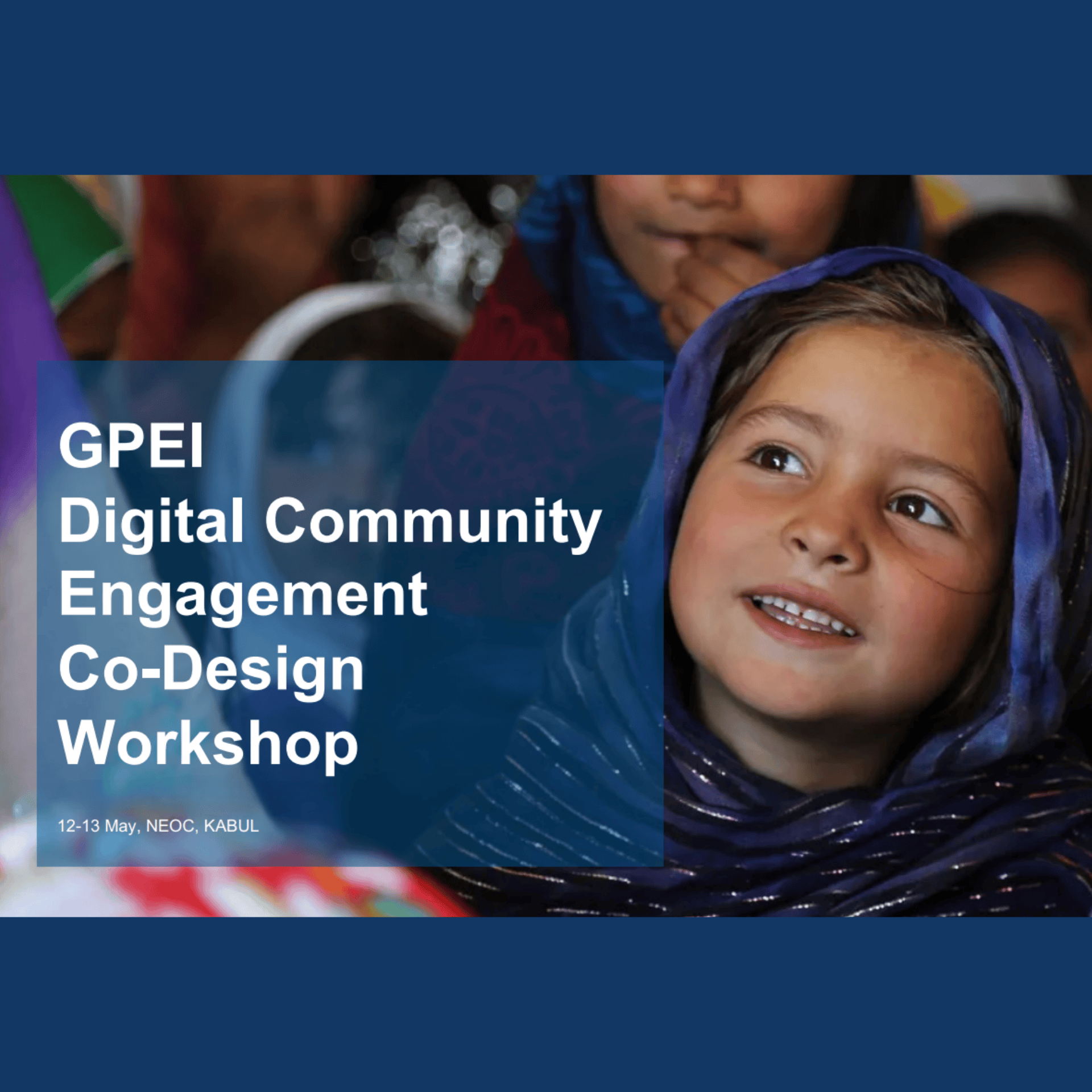
In May 2025, over forty frontline workers, provincial health managers, social mobilizers, and communication specialists from across Afghanistan convened at the National Emergency Operations Center (NEOC) in Kabul for an ambitious two-day co-design workshop. Their goal: co-developing a national Digital Community Engagement (DCE) strategy tailored to Afghanistan’s complex socio-cultural and operational landscape—a strategy that is now undergoing final review and approval.
Understanding the Need: Challenges and Opportunities
The workshop opened with a deep-dive session grounded in field realities, highlighting eight core challenges and ten distinct opportunities drawn from a comprehensive discovery process. Participants underscored key barriers such as persistent "polio fatigue," pervasive misinformation, disconnected digital-community communications, and difficulties engaging male caregivers. Conversely, opportunities included leveraging communities' inherent knowledge about polio, shifting towards whole-child care narratives, integrating WhatsApp as a key digital tool, and converting passive audiences into active digital advocates.
This initial phase provided clarity and urgency, fueling a collective commitment among participants to rethink digital engagement not just as informational broadcasting, but as an authentic dialogue rooted in community values and aspirations.
Co-Creating a Transformative Vision
A central output from the workshop was a shared strategic vision statement:
"Unleash community power in digital, by leaning into unconventional media approaches, emotional connection, and powerful positive advocacy to unlock the final mile in the journey of polio eradication."
Participants emphasized moving away from traditional top-down communications toward a community-driven storytelling model. The goal was to bridge digital and community spheres, highlighting emotional resonance, family pride, and collective responsibility—moving beyond simply informing communities to inspiring and empowering them.
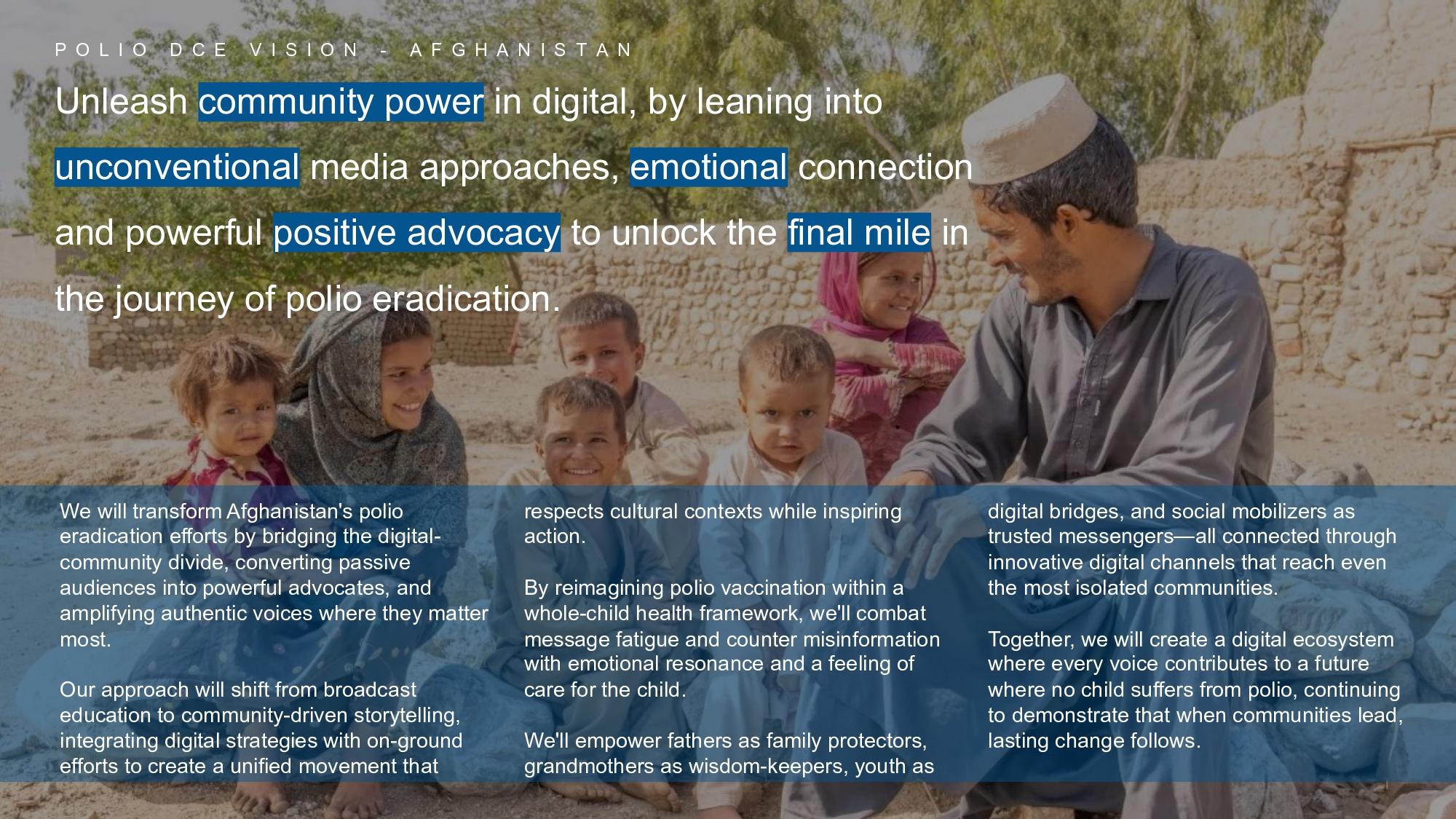
Four Pillars of Strategic Transformation
Through intensive group work and collaborative exercises, participants detailed four interconnected strategic pillars:
1. Community Ownership: A shift towards empowering community influencers—including religious leaders, community elders, and national figures—to take ownership of polio eradication efforts. This includes establishing local WhatsApp groups for continuous communication, providing training to address misinformation, and fostering proactive, community-led advocacy.
2. Person Centricity: Adopting a holistic, whole-child health perspective, positioning polio vaccination as part of broader child wellbeing. Practical strategies include equipping community health workers (CHWs) and social mobilizers (SMs) to digitally disseminate relatable, culturally sensitive content. Interactive quizzes, storytelling, and emotional narratives focusing on care, protection, and family pride form the core of this pillar.
3. Collaborative Communication: Leveraging youth energy through existing platforms like U-Report and the upcoming launch of uInfluence in Afghanistan. Participants identified youth as critical partners capable of translating complex health information into relatable, creative content. Activities include storytelling competitions, training to combat misinformation, and fostering youth-to-youth dialogue, shifting perceptions from fatigue to enthusiasm.
4. Emotional Resonance: Engaging male caregivers by reframing vaccination as a source of pride and masculine responsibility. This pillar emphasizes emotional storytelling, celebrating fathers as protectors and decision-makers for family health, thus countering vaccine hesitancy driven by misinformation and cultural beliefs. National influencers, personal testimonials, and emotional visual narratives are central to this approach.
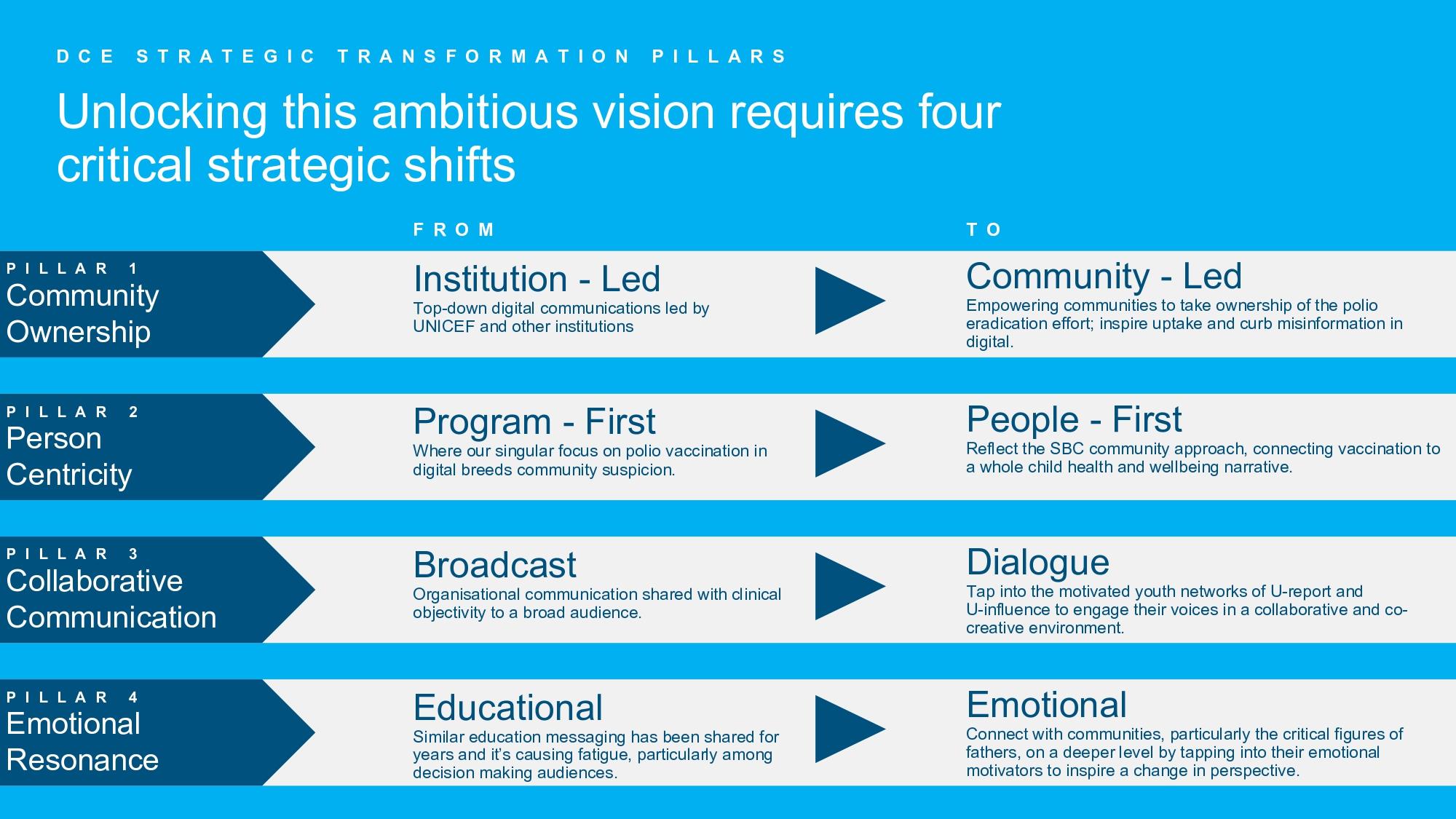
From Theory to Tangible Commitments
By workshop conclusion, participants identified tangible steps forward. Key commitments included establishing a cross-sectoral Communications Working Group involving the Ministry of Public Health, drafting Memorandums of Understanding (MOUs) for seamless institutional cooperation, and rapidly setting up regional digital ecosystems anchored in WhatsApp channels.
Specific participant recommendations also emerged:
- Utilizing existing provincial roundtable discussions to tailor national messages locally, accounting for linguistic and cultural nuances.
- Training healthcare staff and community influencers in digital literacy to enhance message dissemination and authenticity.
- Creating incentives for religious leaders and respected elders to actively participate digitally and publicly counter misinformation.
- Ensuring digital content resonates by using locally relevant, emotionally engaging stories, particularly highlighting survivor experiences and community pride.
Crafted with Communities, Led by Insight
Alexandros Semeloglou, KM and DCE Specialist with the UNICEF Afghanistan Team, emphasized the transformative potential of integrating digital insights with direct community feedback. With a particular focus on leveraging youth voices and emotional storytelling, Alexandros highlighted the importance of crafting culturally resonant messages that genuinely connect and empower communities:
This strategy was not written behind a desk — it was built with the voices of Afghan communities. Through social listening, we had already gained valuable insights — but speaking directly with local leaders and frontline workers brought a new depth to our understanding. One of the strongest lessons was how much emotional resonance matters: how storytelling around family pride and protection can engage fathers, how youth-led narratives can energize conversations, and why whole-child health must be at the heart of our content.
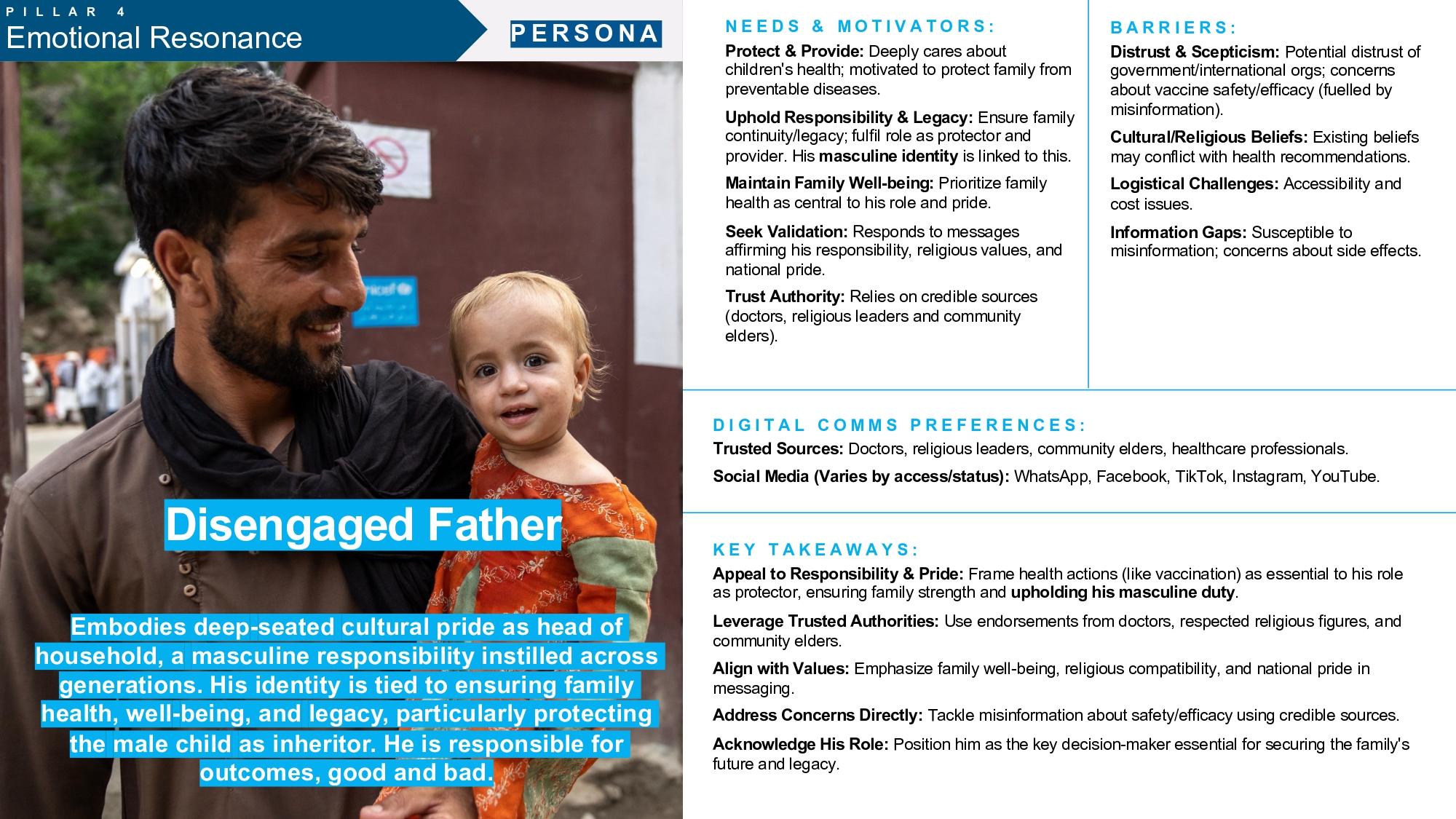
Next Steps: A Community-Powered Future
As the DCE strategy moves through its final approval stages, the workshop's impact is already clear. Early implementation efforts, informed by weekly social listening data, demonstrate the effectiveness of embedding real-time community insights into digital strategies. Regional adaptation, participant-driven content creation, and localized messaging are already reshaping how vaccination efforts resonate at community levels.
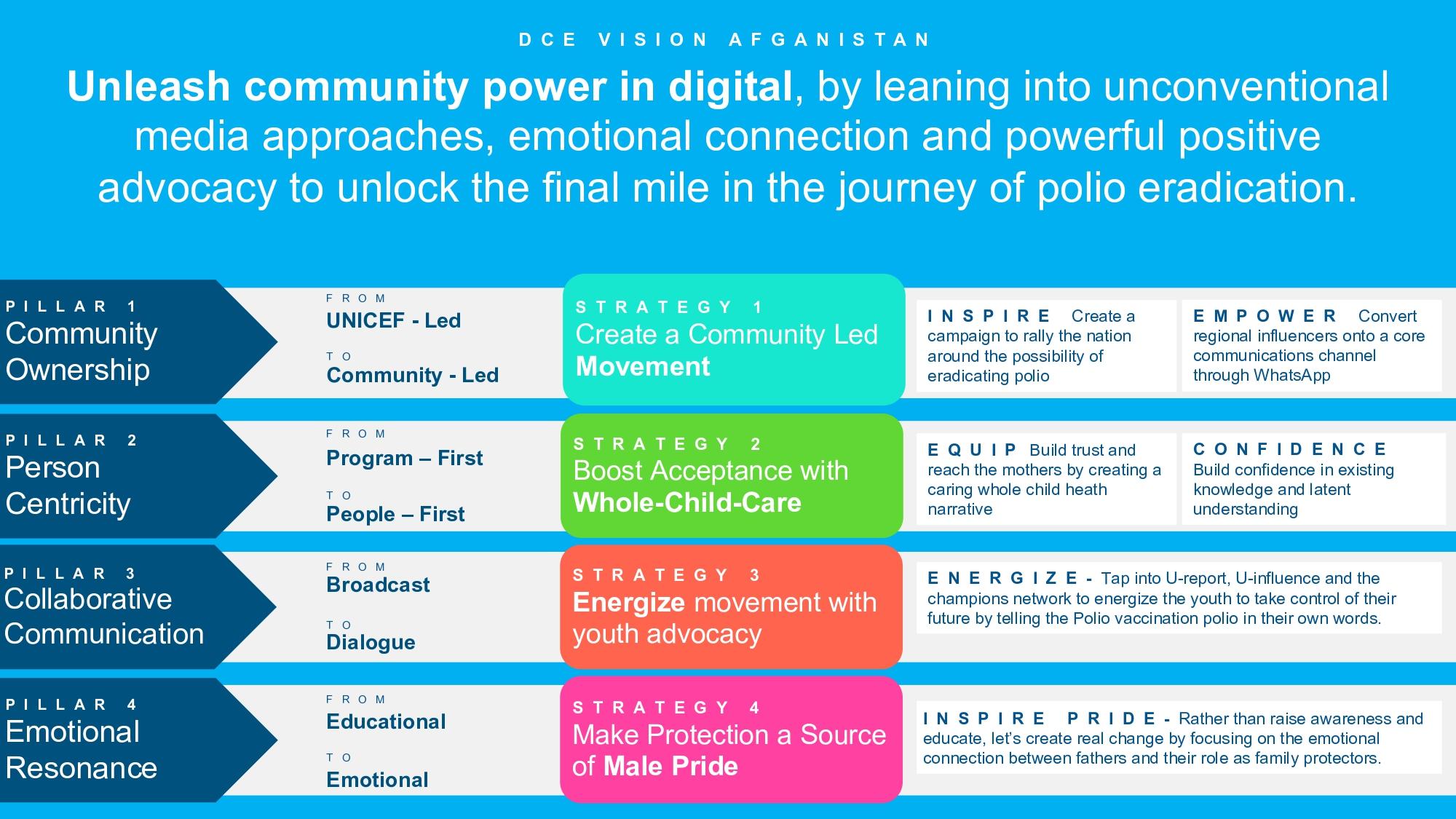
Afghanistan’s Digital Community Engagement approach is more than a strategy—it signifies a fundamental shift toward authentic, collaborative communication, built and powered by the communities it serves.

